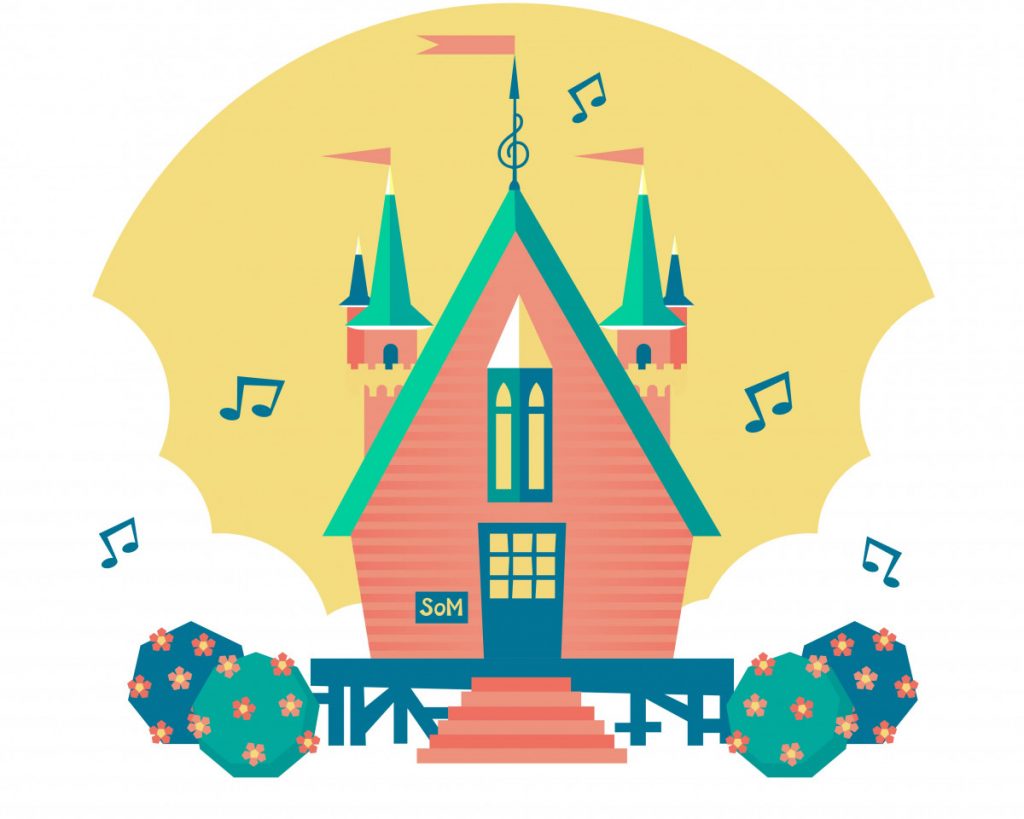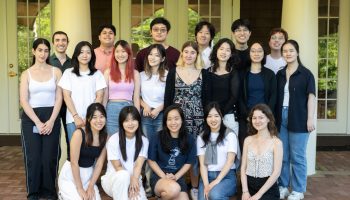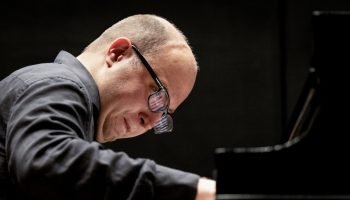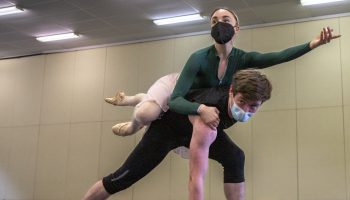
The words “groovy” and “jazzy” are not usually used to describe the classical works of giants like Beethoven, Brahms and Chopin. But Andrew Chen, a student from the Eastman School of Music, said Russian composer Nikolai Kapustin is helping him pick up the pace for the last piano recital of the season.
“This piece is really upbeat and happy and just makes you want to dance,” Chen said. “Classical music has more versatility than we give it credit for.”
First up for Chen is Kapustin’s “Variations,” Op. 41. Kapustin frequently mixed jazz influences with classical compositions, breaking boundaries for “that realm of the arts,” according to Chen.
“All of his chords are different from Beethoven, Brahms, Chopin — all of them,” he said. “It’s unique technically, as well, as it is mostly played on all black keys. It is so rewarding to play.”
Chen, along with five other students from the Chautauqua School of Music Piano Program, will perform in their fourth and final recital of the season at 4 p.m. EDT on Friday, Aug. 7, on the CHQ Assembly Virtual Porch. Joining him are pianists Hyeseon Jin, Alexander Lo, Kerry Waller, Sheena Hui and ShunFu Chang.
Chen will also play Mozart’s Piano Sonata No. 18 in D major, K. 576. It’s considered Mozart’s last sonata and originated during his trip to Berlin and Potsdam in 1789. Mozart was commissioned by the Prussian King Friedrich Wilhelm II to write a set of six easy sonatas for his daughter.
“It is very lighthearted and joyous,” Chen said. “During the pandemic, it has been easy for our lives to begin to feel gloomy and repetitive, but Mozart brings a brighter spirit into the room with this piece.”
The selection by Mozart is “pleasing to the ears,” while the piece by Kapustin may be harder to digest for most listeners, Chen said.
“For Kapustin, his sound isn’t heard much in a classical setting, so it’s nice to bring it to this platform knowing it won’t be expected and familiar to everyone in the room,” he said.
Hyeseon Jin, a student from Indiana University, will play Hungarian composer Franz Liszt’s “Sonetto 104 del Petrarch,” from a set of three “Petrarch Sonnets.” The pieces are inspired by the poetry of Italian Renaissance poet Francesco Petrarca and are all concerned with love.
Liszt published the “Petrarch Sonnets” in a score containing several other piano pieces, the second set of his “Années de Pèlerinage,” meaning “Years of Pilgrimage,” written during a two-year stay in Italy.
“I wanted to travel to Europe through Liszt’s music, since we can’t physically go anywhere during the pandemic,” Jin said.
Originally conceived as songs for piano and tenor voice, Liszt later reinvented them as solo piano works.
“There are actually quite complex lyrics assigned to this music,” Jin said. “As I am just playing the keyboard and not using the text, I have to convey the content of the poem through the keys. That’s something I have never taken on before.”
“Sonetto 104” is the most passionate, agitated and dramatic of the three, based on the sonnet “I Find no Peace” by Sir Thomas Wyatt. In it, the Wyatt ponders the confused state love has put him in. Enthralled by his lover, he feels imprisoned, yet free, and “burns with love.”
“The poem is about love, but it uses a lot of contrasting stories to convey it,” Jin said. “For example, it talks about wanting to touch the sky, even though you are laying on the ground. There is a space between where you are, and where you want to be, which is ultimately with this person you are singing about being in love with.”
Alexander Lo, another student from the Eastman School of Music, will perform Polish composer Frédéric Chopin’s Ballade No. 4 in F minor, Op. 52. Chopin composed four ballades for solo piano between 1835 and 1842. His inspiration for the fourth was Polish poet Adam Mickiewicz’s poem, “The Three Budrys,” which tells the story of three brothers sent away by their father to seek treasures and their return with three Polish brides.
“Most people consider this one to be the most difficult of his four ballades,” Lo said. “It is extremely intense and profound from start to finish.”
Lo was a School of Music student in 2019 and said the “main bulk” of his time learning the Chopin piece took place on the grounds. The following school year, he set it aside, but brought it back during quarantine for “polishing.”
“I wanted to bring this piece full circle,” Lo said. “So much of my progress with this piece took place at Chautauqua, so to have my first real performance of it happen at Chautauqua as well gave me that extra motivation to make it something special.”
In addition to his one-on-one lessons and coachings, Lo said he found himself working on his selection in “all aspects of the (School of Music) programming.”
“I would take what I learned from the master classes and lectures and ask myself what those lessons could add to the meaning of my music,” he said. “It was enriching to look at this piece for so long and so in-depth — I feel like I know it from the inside-out now.”




